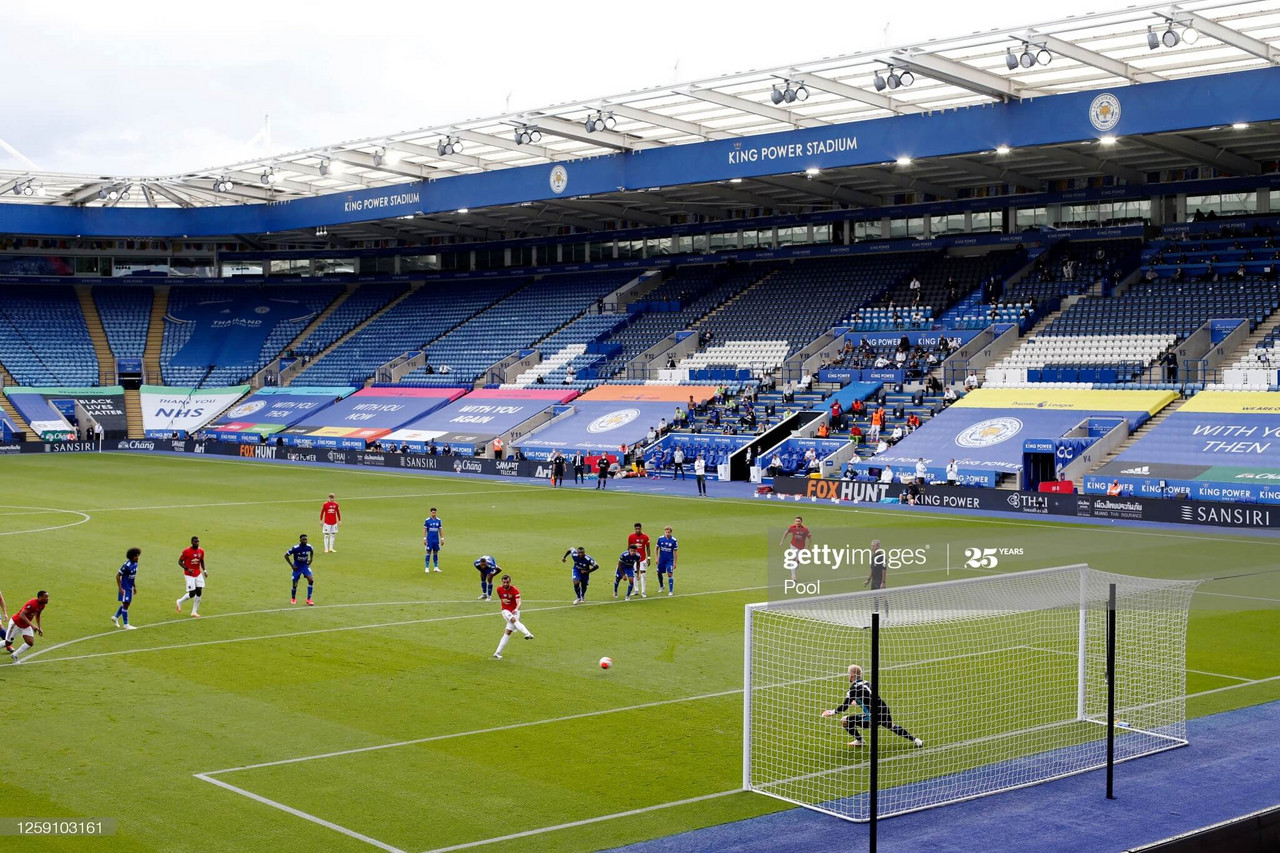Manchester United, it has been argued, have relied this season too heavily on penalty kicks as a way of scoring goals.
And while it is true that United this year broke the Premier League record for penalties awarded, with fourteen (ten of which were converted) – the introduction of the Video Assistant Referee at the beginning of the 2019-20 season ensured that any foul overturned must have a ‘clear and obvious error’ in the original decision – surely wiping out the argument that United have been ‘too lucky’ with decisions this year.
United’s Penalties in 2019-20
Bruno Fernandes' extra-time winner – of course, from the spot – against FC Copenhagen in the Europa League quarter-final this week brought United’s penalty tally to twenty-one for the season in all competitions; a variety of discretions that led to penalties and subsequently, a variety of takers for Ole Gunnar Solskjaer’s men - Fernandes being the most successful, with all seven of his attempts finding the net.
Indeed, United have played thirteen games since football restarted in June, and have been awarded penalties in six of those – all of which were tucked away.
It almost seems fitting that United’s first goal of the 2019-20 season was a penalty that Marcus Rashford won thanks to a tangling of legs with Kurt Zouma of Chelsea, and henceforth converted, and since that 4-0 victory over Frank Lampard’s youthful Blues, the penalties have continued to roll for Solskjaer’s side.
Some, such as United’s equaliser away at Tottenham Hotspur after football restarted in June, were stonewall; Eric Dier brought down Paul Pogba after a sublime dribble from the Frenchman.
But some, such as the Red Devils’ first goal away at Aston Villa; the referee adjudged Bruno Fernandes to have been brought down by Erzi Konsa – a decision that probably should have gone the other way in retrospect.
The penalty kick has also been crucial to some of United's biggest results this season - the likes of Rashford's winner against Spurs at Old Trafford in December aided a struggling United side overcome Jose Mourinho's side.
Likewise, Rashford's opener against Manchester City that same week helped Solskjaer's side to an astonishing 2-1 victory over Pep Guardiola's Cityzens - and victories over two of football's most successful managers in the last twenty years.
As a result of games such as these, United’s penalty fortunes, it could be suggested, could be why they finished the season in third place - a result that many saw as inconceivable in January when United were struggling against the likes of Burnley.
However, the statistics may well be slightly distorted due to their difficulty earlier in the campaign of scoring from open play – the stigma of United ‘relying’ on penalties may not have washed since the arrival of Fernandes in January, which felt like the missing piece that rid the side of static and lethargic possessive play, replacing it with quick, attacking football – and that’s fine.
As previously stated, the introduction of the Video Assistant Referee means that any doubts over the legitimacy of United’s penalty decisions cannot be held up – but again, that doesn’t answer the question to why United continue to win these penalties.
The answer lies with the team-building of Ole Gunnar Solskjaer.
Solskjaer’s desire to build his team with quick-footed, technically gifted penalties gives United an advantage when it comes to winning penalty kicks – the likes of Fernandes, Mason Greenwood and Daniel James were all brought into the side – Greenwood, obviously through the academy – partly due to their quickness or quality on the ball – again, for many in United’s side, they possess both of these skills.
The dynamic front three of Rashford, Greenwood and Anthony Martial have already been unleashed to lethal effect since the restart, and the link-up of Bruno Fernandes and Paul Pogba has seen a real shift in the build-up play of United’s attacks – and frankly, the difference between now and the dreaded nights of December and January is night and day.
Can this be sustained?
To think that United can continue to break their own records is probably unrealistic. To win twenty-plus penalties year-on-year cannot be expected from Solskjaer’s side, and it would be wise to imagine that their efficiency from open play will improve next season, as the front three continues to develop as well as the midfield behind them.
However, with a move for Borussia Dortmund’s Jadon Sancho looking possible this summer, it could be seen that United continue their growth and proficiency in front of goal.
While Sancho probably would not be the first-choice penalty taker – thanks to Fernandes’ one-hundred percent record since joining in January – his record of seven penalties scored and only one miss in his career could see him as one of the first reserves if neither Rashford or Pogba are available.
As well as a move for Sancho, the rumour mill continues to swirl regarding a creative force in midfield – Aston Villa’s Jack Grealish is a name that has been mentioned.
A player of Grealish’s calibre would be interesting in United’s potent attacking line-up – the Villa midfielder broke the Premier League record in June for the most fouled player in one season – again, a tricky midfielder with good footwork and the ability to win a foul.
United also lack creativity from the bench – an arrival such as Grealish would help the depth, quality and continue their tendency to win fouls.
Regardless of any incomings at Old Trafford, it is crucial that United continue to improve their effectiveness from open play – but should a chance to convert from the spot next season, history knows that United can step up.










































